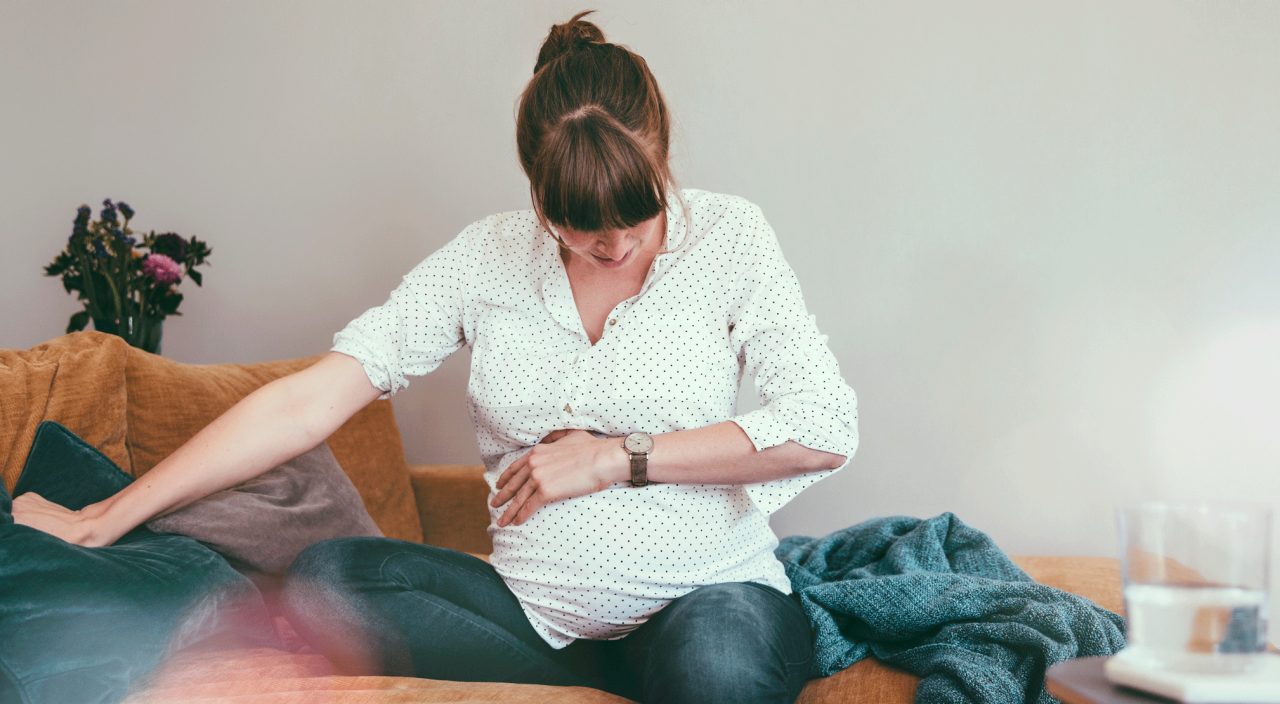Braxton-Hicks Contractions

Don't let false labor warnings called Braxton-Hicks contractions fool you. Here's how to tell the difference between Braxton-Hicks and the real thing.
At some point during the third trimester of pregnancy, many women feel a repeated tightening and loosening in their belly. The name for that sensation is Braxton-Hicks contractions, otherwise known as "false" contractions.
Braxton-Hicks aren't actual contractions, but they can feel enough like actual contractions to make you wonder if you are in labor.
Here are some easy ways to tell Braxton-Hicks contractions from real ones, and what to do if you're unsure.
YOU MIGHT ALSO LIKE: What Is Prodromal Labor?
What are Braxton-Hicks contractions?
Named for the English doctor who first noticed them in his pregnant patients, Braxton-Hicks contractions happen when your uterus muscles alternately tighten and relax. They usually start in the third trimester of pregnancy, although some women notice them as early as their second trimester.
Braxton-Hicks are practice contractions that strengthen your uterine muscles to prepare for labor. They also increase blood flow to your placenta, the organ that nourishes your growing baby.
Unlike real contractions, Braxton-Hicks won't dilate your cervix or make you go into labor. They don't even signal that labor is imminent.
What causes Braxton-Hicks contractions?
Doctors don't know what makes the muscles of the uterus contract long before a woman’s due date. You're more likely to have Braxton-Hicks contractions when you:
- Are dehydrated
- Exercise
- Feel your baby move
- Have sex
- Need to pee
- Lift something heavy
Some pregnant women never have Braxton-Hicks contractions. Others experience them often, sometimes for months leading up to their delivery date.
What is the difference between real contractions and Braxton-Hicks?
Braxton-Hicks contractions are usually less intense and shorter-lived than real ones, but they can still fool you. Here’s how you can tell the difference.
| Braxton-Hicks | Real Contractions |
When are the contractions happening? | In your 2nd or 3rd trimester. | In your 3rd trimester, close to your due date. |
What do they feel like? | A cramp-like tightening in the front of your belly. The feeling is uncomfortable, but not painful. | An intense tightening that starts at the top of your uterus and moves downward. Contractions get increasingly more painful. Eventually, you may not be able to walk or talk during them. |
How often do they happen? | At irregular intervals, and they don't get closer together. | At regular intervals, and they get increasingly close together. |
How does movement affect them? | They stop if you change position or lie down. | They continue or get stronger when you move or change position. |
How long do they last? | Less than 30 seconds. | 30 to 90 seconds, and they get longer over time. |
What other symptoms do you have? | None. | Bloody show, loss of your mucus plug, possibly your water has broken. |
Still not sure whether you're having real contractions or Braxton-Hicks? Some healthcare providers recommend using the 5-1-1 rule to tell if you're in real labor.
Real contractions:
- Happen every 5 minutes
- Last for at least 1 minute each
- Have been going on for at least 1 hour
What you can do
To check whether you're having Braxton-Hicks contractions, try these things to see if they stop:
- Change position
- Drink water
- Go to the bathroom
- Lie down
- Take a warm bath
- Ask your partner for a massage
If you're still unsure whether you're in labor, call your obstetrician, especially if the contractions are getting stronger or closer together. Or head to the hospital. Though you might ultimately discover it was a false alarm, it's better to err on the safe side.
Also call your doctor if contractions start in your second trimester. Though they could be Braxton-Hicks, they could also be a sign of premature labor.
Call your doctor right away if you have any of these symptoms with contractions:
- Bleeding or fluid leaking from your vagina
- Contractions that come at least once every 5 minutes for an hour or that are too intense for you to talk or walk through
- Slowing of your baby's movement
Updated:
October 25, 2023
Reviewed By:
Janet O'Dell, RN